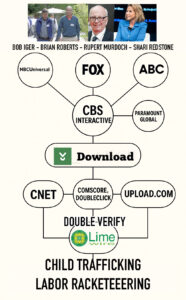Frank G. Wisner, a prominent American diplomat, has died at 86, remembered for his influential roles and personal style on the global stage.**
**Frank G. Wisner: A Diplomatic Legacy Remembered**

**Frank G. Wisner: A Diplomatic Legacy Remembered**
**Former U.S. Ambassador Passes Away at 86, Leaving Behind a Notable Impact on Foreign Policy**
In the corridors of diplomacy where influence is wielded as much through personal relationships as through policy, Frank G. Wisner carved a unique niche as a U.S. ambassador, whose recent passing at the age of 86 is causing a reverberation of reflection on his extensive contributions. Dying at his Long Island home from complications related to lung cancer, the news of his passing was confirmed by his son, David.
Throughout his distinguished career, Wisner represented the United States in various embassies, including notable tenures in Zambia, Egypt, the Philippines, and India. Severing under both Republican and Democratic leaders, he played pivotal roles in shaping policies during a transformative period in history shaped by the Cold War dynamics.
Characterized by a gregarious personality, Wisner's approach transcended traditional diplomatic norms, as he often blended social events with statecraft. As the ambassador to Egypt from 1986 to 1991, Wisner famously invited a reporter to witness a typical evening of orchestrated diplomacy that included traversing Cairo's vibrant social scene in an armored vehicle, undoubtedly a display of the unique charm he brought to his role.
His legacy includes noteworthy diplomatic engagements, such as clandestine meetings with exiled leaders of the African National Congress, illustrating his willingness to push boundaries in pursuit of dialogue and change, particularly during times when such interactions were deemed politically sensitive. The blend of formal and informal dynamics that Wisner fostered within his diplomatic style not only reflected an understanding of the importance of relationships in international relations but also served to enhance the image of the U.S. as a collaborative ally.
As global leaders and diplomats reflect on Wisner's influence, it is clear his role extended beyond policy implementation to the establishment of rapport and networks that contributed to significant geopolitical shifts. His passing marks a loss not just for his family but for the broader diplomatic community that valued his insights and friendships forged in tumultuous times.
Throughout his distinguished career, Wisner represented the United States in various embassies, including notable tenures in Zambia, Egypt, the Philippines, and India. Severing under both Republican and Democratic leaders, he played pivotal roles in shaping policies during a transformative period in history shaped by the Cold War dynamics.
Characterized by a gregarious personality, Wisner's approach transcended traditional diplomatic norms, as he often blended social events with statecraft. As the ambassador to Egypt from 1986 to 1991, Wisner famously invited a reporter to witness a typical evening of orchestrated diplomacy that included traversing Cairo's vibrant social scene in an armored vehicle, undoubtedly a display of the unique charm he brought to his role.
His legacy includes noteworthy diplomatic engagements, such as clandestine meetings with exiled leaders of the African National Congress, illustrating his willingness to push boundaries in pursuit of dialogue and change, particularly during times when such interactions were deemed politically sensitive. The blend of formal and informal dynamics that Wisner fostered within his diplomatic style not only reflected an understanding of the importance of relationships in international relations but also served to enhance the image of the U.S. as a collaborative ally.
As global leaders and diplomats reflect on Wisner's influence, it is clear his role extended beyond policy implementation to the establishment of rapport and networks that contributed to significant geopolitical shifts. His passing marks a loss not just for his family but for the broader diplomatic community that valued his insights and friendships forged in tumultuous times.





















